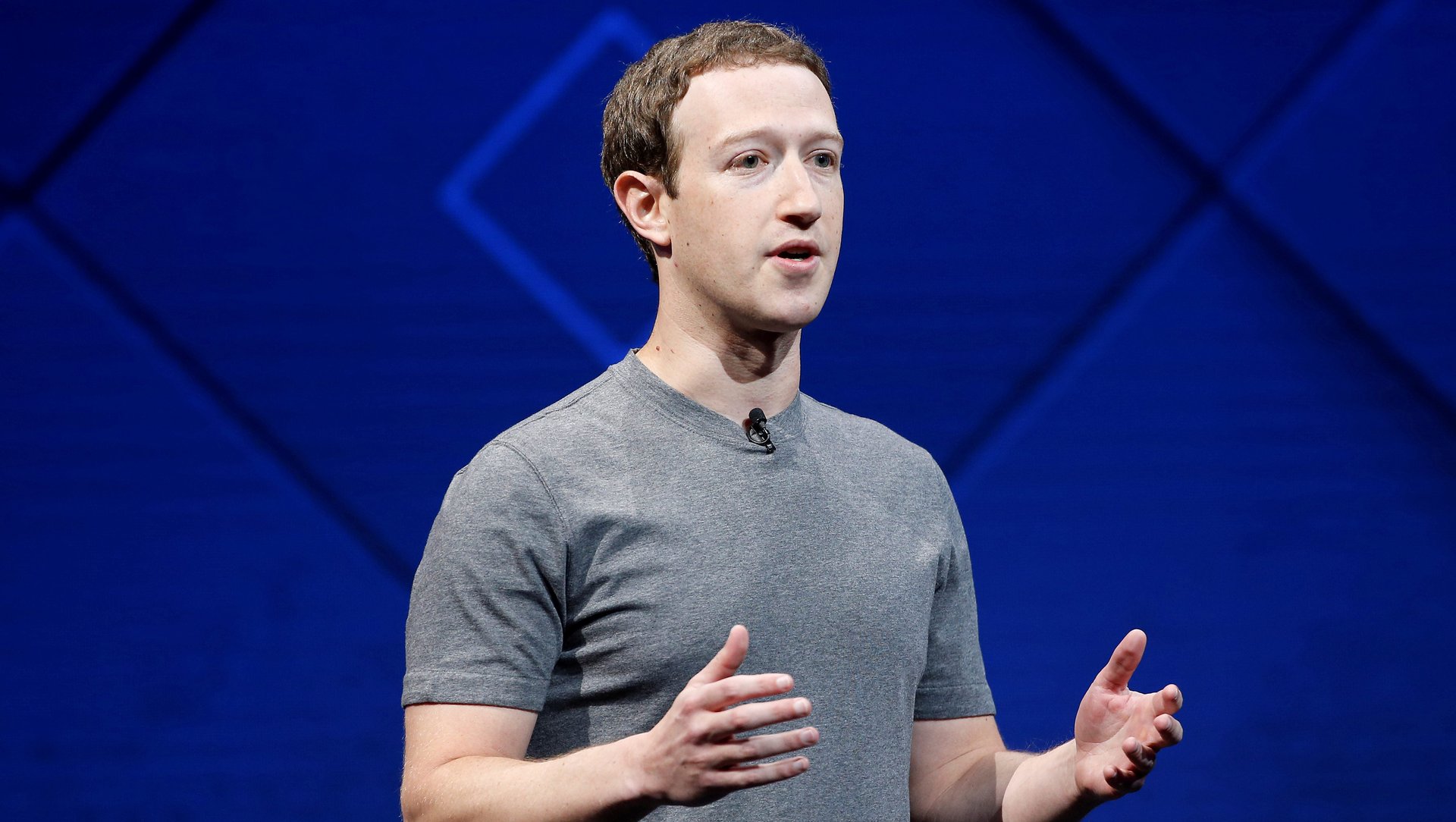An early Facebook investor and Zuckerberg mentor compared the platform’s role in the US election to a plot of a “sci-fi novel”
Longtime Silicon Valley investor Roger McNamee says that mentoring Mark Zuckerberg in Facebook’s early days, and his influence on the company, had been his “proudest accomplishment.” But, like others involved with Facebook in its infancy, including its founding president Sean Parker and former executive Chamath Palihapitiya, McNamee has become disillusioned, and is demanding that the company change its ways.


Longtime Silicon Valley investor Roger McNamee says that mentoring Mark Zuckerberg in Facebook’s early days, and his influence on the company, had been his “proudest accomplishment.” But, like others involved with Facebook in its infancy, including its founding president Sean Parker and former executive Chamath Palihapitiya, McNamee has become disillusioned, and is demanding that the company change its ways.
In a 6,000-word essay for the magazine Washington Monthly, McNamee fastidiously outlines the problems he sees with Facebook, focusing on how “third parties”—meaning Russian actors, discriminatory advertisers, or firms selling data of Black Lives Matter activists to police—had been exploiting the “unguarded” platform. McNamee is the founder of venture capital firm Elevation Partners, and has become an outspoken critic of Facebook and Google, off of which he says he profited “enormously” as an early backer.
“It reads like the plot of a sci-fi novel: a technology celebrated for bringing people together is exploited by a hostile power to drive people apart, undermine democracy, and create misery,” he writes in his essay, describing what happened during the 2016 US election.
We had constructed a modern Maginot Line—half the world’s defense spending and cyber-hardened financial centers, all built to ward off attacks from abroad—never imagining that an enemy could infect the minds of our citizens through inventions of our own making, at minimal cost. Not only was the attack an overwhelming success, but it was also a persistent one, as the political party that benefited refuses to acknowledge reality. The attacks continue every day, posing an existential threat to our democratic processes and independence.
McNamee says that, along with journalists, he began noticing problems on Facebook’s platform prior to the election. At the time, aiming to publish his concerns in an op-ed at Recode, he first went to Zuckerberg and Sheryl Sandberg, both of whom he calls friends and whom he says he greatly admired (he told Zuckerberg not to sell Facebook back in 2006, and said his mentorship days ended prior to Facebook’s 2012 IPO). “The gist of their messages was the same: We appreciate you reaching out; we think you’re misinterpreting the news; we’re doing great things that you can’t see.”
They connected him to Dan Rose, another Facebook executive who told him, in a now-well-known refrain, Facebook “was not a media company and therefore was not responsible for the actions of third parties.” He told Rose he wouldn’t publish an op-ed.
But, he says, after the election “he lost it” and started actively campaigning in Washington to address the platform’s detrimental role in society. He is working with the think tank the Open Markets Institute, which has taken on the political fight against big tech.
Since the election, Facebook and its leaders have revised their stance about the company’s responsibilities, particularly with regard to Russian meddling in US politics. Notably, Zuckerberg’s 2018 self-improvement project is simply fixing Facebook.
McNamee outlines eight steps to fix Facebook, including several regulatory solutions, such as protecting consumer data, and treating Silicon Valley giants like monopolies. He writes that because of the US government’s “laissez-faire” approach, internet platforms have been able to enjoy unprecedented freedom, causing broad harm. He offers a succinct diagnosis of the problems:
No one stopped them from using free products to centralize the internet and then replace its core functions. No one stopped them from siphoning off the profits of content creators. No one stopped them from gathering data on every aspect of every user’s internet life. No one stopped them from amassing market share not seen since the days of Standard Oil. No one stopped them from running massive social and psychological experiments on their users. No one demanded that they police their platforms. It has been a sweet deal.